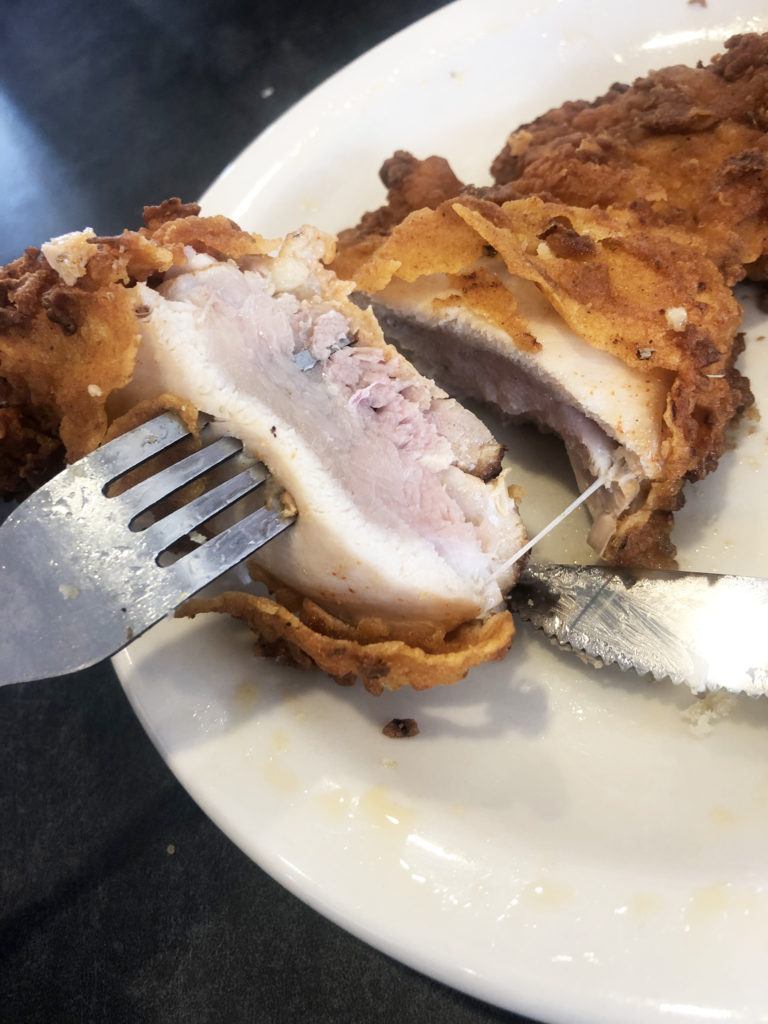Contradicting Accounts Arise Amongst Chartwells Management and Employees
In recent months, workers have made allegations of food safety issues and workers’ rights violations against Seattle University’s current food provider, Chartwells. As the community raises concerns, Seattle U employees and students have come forward with plans to remedy issues and tell their own sides of the story.
Chartwells has dismissed these allegations after investigating the claims voiced by workers in a recent resolution from the Student Government of Seattle University (SGSU) and past articles from The Spectator.
“At this point, they are just that, they are only allegations. We have investigated thoroughly every claim and they have not been substantiated at this time,” West Division President for Chartwells Joe Fischioni said.
This past week, SGSU and Residence Hall Association (RHA) sent representatives to meet with Chartwells’ upper management about SGSU’s resolution condemning the treatment of student workers. The groups met to create a plan to address the reported allegations and improve student experiences on campus, with the ultimate goal being a collaborative approach.
Cassidy Scandola is the Assistant Vice President of Procurement and Auxiliaries at Seattle U. According to their website, this office handles campus-wide purchasing, and thus, oversee and manage any contract with food providers. She said that meetings between SGSU, RHA, and Chartwells are crucial to resolving any conflict.
“Increasing the communication with SGSU and RHA, having those people embrace the partnership, and having it grow [will be beneficial] because it does take both sides to have that partnership,” Scandola said. “Really having that concrete constructive feedback is what we and Chartwells are looking for.”
Scandola further said that Seattle U had not heard of any specific pay issues.
“In our meeting with SGSU and RHA, they were going to encourage anybody if they had an issue with the pay that they would go and communicate with Chartwells about it,” Scandola said. “At this point, we are unaware of any pay issues.”
As a part of these efforts to address food quality allegations, RHA called a feedback session with members of Chartwells management, including Resident District Manager Shelley Strayer and Executive Chef Andrew Gaynor.
The meeting was announced to students in a campus-wide email sent out two hours before the beginning of the event. The email, sent by RHA, said the meeting would occur in roughly two hours, from 6 p.m. to 7 p.m. Chartwells prepared questions for students to answer during the meeting, such as inquiries about customer service, pricing, and food quality.
“There’s a lot of people that are loyal… They work here for the students and for each other, but some can’t take it anymore.”
Chartwells additionally asked attendees to “name the associates who provide the best service” and to “name the staff members who provide poor service.”
This was followed by a brief 10-minute session where students were allowed to ask questions in turn. Students could also ask questions through a survey sent along with the announcement email.
Students’ primary concerns involved the number of options available for students with alternative dietary needs—especially gluten- free, vegetarian, and vegan options. Students also hoped that food would be properly labeled so that individuals with allergies could safely know what is in their food.
At the end of the session, Chartwells representatives opened the floor to students. Multiple individuals brought forth questions concerning the treatment of workers and the quality of food. The question portion was cut short, however, as the meeting had gone 10 minutes over the allotted time. Chartwells stated their interest in the possibility of holding a feedback session where students would be given more time for questions.
Both employees and students have noticed issues with Chartwells’ food. First-year Economics major Alejandro Ramirez took issue with the food quality and was concerned about the safety in particular. After the interview, he decided to grab dinner at Cherry Street Market, and found himself cutting into an uncooked piece of fried chicken.

Shelley Strayer offered the student a refund for an undercooked piece of fried chicken.
“I think that food quality has just gone down over the course of the quarter. I’ve had fried chicken and each time it seems to get worse,” Ramirez said. “Chartwells doesn’t seem to care, they are just trying to get people to move on by distracting them with new stuff—like these new tables or the new buildings—without doing anything.”
Chartwells workers are not allowed to speak with The Spectator regarding their work matters; all employees who spoke out against Chartwells have asked to remain anonymous out of fear of losing their jobs.
One issue that workers have brought up regarding food safety is the Food Worker Card permit, which teaches workers proper safety for cooking and handling food. Washington state law requires that all food workers have food safety training before handling food that is served to the public.
The first employee said that there are multiple workers who do not have this permit and that Chartwells has not been keeping up-to-date records regarding this information—this would be a violation of food safety law. Strayer and Fischioni contradicted this claim when prompted with this specific allegation—they said that it is a requirement that all workers have valid permits and that this information is current.
When asking workers, a second anonymous employee said that they had a Food Worker Card but that it has expired, and a third anonymous employee said that they are not sure whether they have one.
“I would assume [I have a valid permit] but I have no knowledge of it,” a third anonymous employee said.
“At this point, they are just that, they are only allegations. We have investigated thoroughly every claim and they have not been substantiated at this time.”
Some workers see issues like this as an indication of a disconnect and conflicting stories between Chartwells management and workers’ needs and expectations.
“Of course they think that this is a one-sided issue and we need to be more cooperative,” a fourth anonymous employee said. “They don’t answer emails, texts, or written complaints, so no wonder they don’t think there’s an issue.”
Fischioni said that there are regular trainings and that all employees are trained for the stations they work at, but one employee said that they had not been officially trained for most of the positions they work.
“I was not given any training for anything other than making the Caffe Vita coffee, which I got more than three months after I had been hired for that position,” the second anonymous employee said.
One reason that these employees sense a disconnect is because supervisor meetings were canceled, which prevents them from bringing up issues with their managers. Chartwells has reported that their managers are still running these meetings, but the first and fourth anonymous employees said that these meetings were canceled after scheduling issues at the end of winter quarter and occurred have yet to be reestablished.
The anonymous workers also expressed that employees who have worked at the school for multiple years have quit out of frustration.
“There’s a lot of people that are loyal. They would still work because this is their livelihood, this is what they’ve been doing for 10 to 15 years,” the first anonymous employee said. “They work here for the students and for each other, but some can’t take it anymore.”
After the publication of recent articles from The Spectator, Chartwells said they feel there is more of a need to work together with students and workers to create an environment that includes constructive feedback and solutions to problems rather than solely accusations of mistreatment.
Latasha Harrison, a former supervisor and current full-time employee, took issue with many of the allegations reported by The Spectator. She asked her manager for permission to make statements to The Spectator, and they allowed her to speak about her personal experiences.
Other employees have been asked only to make statements through Strayer. If they were to talk otherwise, several employees believe they could risk losing their jobs.
Harrison said that the allegations of poor food quality and sourcing are not true, and she said that employees who make allegations like these are not taking the time to fully investigate them. Harrison took issue with employees’ claims in recent Spectator articles.
“[‘Chartwells Employees Speak on Food Quality at Seattle U,’ the article printed by The Spectator on May 22] really felt like a personal attack to get the company shut down. That doesn’t help anybody; it’ll just put us out of work,” Harrison said.
For students that do experience food quality issues, Harrison recommended that they bring their issues to management immediately so that they can be addressed, saying the whole staff will be retrained so these issues do not come up again.
Fischioni said that he hopes students will continue to raise constructive criticism but make an effort to speak on the things they like.
“We certainly want to hear from students to hear what issues they are having but we are also hoping they can partner with us to make the program better,” Fiscioni said. “There’s an effort to focus more on the negative and I think at some point we have to turn the corner and focus on the positives.”
Ultimately, problems have culminated throughout Chartwells’ first year as the campus food provider with the testimony of employees directly contradicting the management’s narrative. Currently, there seem to be no resolutions to the growing concerns as more students and employees bring to light poor food quality and mistreatment of workers.
SGSU and RHA could not discuss the content of their meetings with Chartwells prior to publication of this article. They will be authorized to speak on this topic starting May 29.
Logan may be reached at
[email protected]






